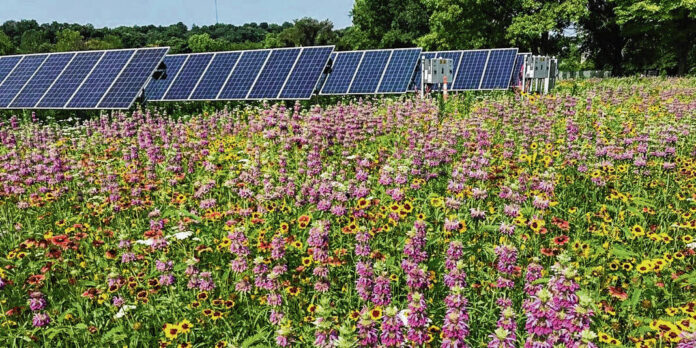More than two dozen people presented a wide array of views about solar farms last week at a hearing of the Bartholomew County Plan Commission, while the elephant in the room was a proposed solar farm of more than 1,000 acres in the northeast townships of the county.
“There were two distinct camps present that appeared well-prepared and passionate about their positions Wednesday,” The Republic’s Mark Webber reported. “One group doesn’t want any commercial solar placed on agricultural land, while the other supports the solar project.”
Several questions were raised about setback requirements from neighboring properties, the costs and responsibility of decommissioning solar farms and other issues related to solar farm development. These are all items that proposed land-use regulations can and should address. The commission delayed action until next month to consider and respond to points raised by members of the public.
Thorough study and public input tend more often than not to reach a consensus that best serves the community, and we’re confident that will be the case here. Bartholomew County should take the time it needs to ensure such an outcome. Neither side is likely to get everything it wants, and that’s fair.
We’ve advocated repeatedly for passage of clear county regulations for the siting of solar farms, and the proposed 200-megawatt Swallowtail Solar Farm that Arevon Energy Inc. and Teneska want to build is unlikely to be the only such development proposed in the county. And as city and county planner Jeff Bergman reminded the audience at last week’s hearing, solar farms are currently allowed in Bartholomew County if the applicant receives permission from the local Board of Zoning Appeals.
So the current process gives the county the opportunity to tailor regulations to address the legitimate concerns of both sides. However, the regulations may not be so restrictive that they effectively “zone out” otherwise permissible development.
And to date, we’ve seen no reason the county should not welcome Swallowtail while also adopting reasonable solar farm land-use regulations. Developers have signaled every intention to be responsible stewards. They have pledged to develop site plans for a solar array that could provide clean, renewable energy powering some 30,000 homes for 30 years. They intend to plant groundcover and restore the land to its original state when the farm is decommissioned somewhere around the year 2055. They have pledged to incorporate the county’s largest pollinator garden. All of which, they say, will result in 340 jobs during construction, add $38 million to Bartholomew County’s economy, and generate $40 million in tax revenue over 30 years.
Love solar panels or hate them, it’s difficult to argue that solar is not a necessary and growing piece of the energy puzzle in the 21st century. It’s even harder to argue that local government should deprive property owners of the right to use their land to harvest clean, renewable electricity from the sun. That would set a terrible and perhaps indefensible precedent for this county. Indiana courts take an exceptionally dim view of regulations that unreasonably limit property rights.
Viewed in this light, we prefer to keep on the sunny side of the solar issue.




